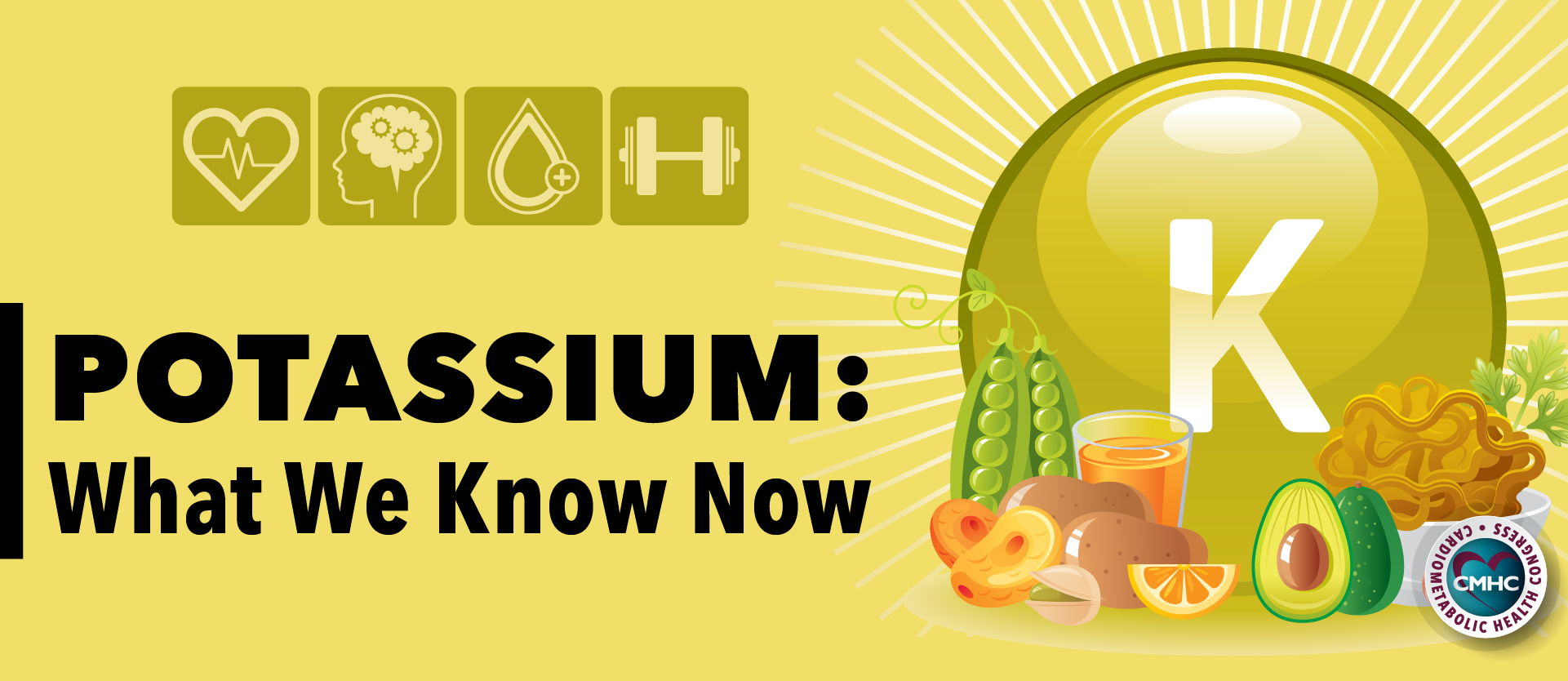Because Cardiometabolic Health Conference (CMHC) is committed to keeping busy providers well-informed on the most current developments affecting their practice, this week’s Pulse Blog focuses on an important new update. Last month CMHC reported on the sometimes-complicated dietary recommendations for patients with comorbid cardiometabolic decline. Specifically, the contradiction that potassium-rich foods have benefits for those with cardiovascular disease but can be detrimental to the health of individuals with chronic kidney disease (CKD). Potassium: Helpful or Harmful outlined the complicated relationship between potassium and cardiometabolic comorbidities and called for further investigation into this important topic. Recently, a presenter at the Annual Dialysis Conference had some interesting insights on this topic after reexamining the research.
Diet and Dialysis
Dialysis is necessary when kidney disease is so advanced that the kidneys can no longer remove the extra water, solutes, and toxins from the body. Most patients who need dialysis are in end-stage kidney failure, when their kidneys have lost about 90% of their function. Patients receiving dialysis will usually need treatments their entire life or until they receive a kidney transplant. The issue of dietary potassium levels (read more about potassium and CKD here) is very relevant to dialysis patients because kidney function is so poor that extreme caution must be used to not cause further damage from high potassium levels. The concept of renal nutrition, especially for those on dialysis, is an important area of study involving how to prevent further kidney damage through diet.
Dr. Joshi’s Session
The Annual Dialysis Conference, held virtually March 4-6, 2022, addressed a myriad of topics related to improving the care and management of patients with CKD and other conditions requiring dialysis. As a clinical assistant professor of medicine at Bellevue Hospital and NYU Grossman School of Medicine, Shivam Joshi, MD, is an expert in renal nutrition. He has published dozens of papers on diet and kidney disease, and he won the National Kidney Foundation’s Joel D. Kopple Award in 2021 for his contributions to this area.
Dr. Joshi’s presentation at the 2022 Annual Dialysis Conference covered a topic relevant to potassium intake for patients with CKD. In his presentation, Dr. Joshi noted that “plant-based diets have historically been avoided or neglected in the use of our patients with kidney disease, especially those on dialysis, for a variety of reasons including issues related to potassium and inadequate protein.” He went on to say that the risk of plant-based diets may be exaggerated because the research that risk was based on was problematic.
New Insights
Dr. Joshi explained that some studies demonstrating that patients who ate a plant-based diet developed dangerously high potassium levels were eating processed plant foods like juices and sauces. Processing these fruits and vegetables removed the fiber, which is actually helpful to aid in the removal of serum potassium. Therefore, it is problematic to generalize that all plant-based diets, like those that focus on eating whole – not processed – fruits and vegetables, should be avoided by patients with CKD.
Ending his session, Dr. Joshi noted that more research into this area is needed to determine exactly how much potassium-rich food safe to consume for people with CKD, but pointed to evidence that a plant-based diet that included enough protein and focused on whole foods seemed to be safe for dialysis patients.
Key Takeaway
Contrary to the long-held idea that patients with CKD should avoid a diet high in potassium-rich fruits and vegetables, a session at the 2022 Annual Dialysis Conference suggests that patients with advanced and end-stage CKD requiring dialysis can keep their potassium levels under control while eating a plant-based diet.
Sources:
- https://www.healio.com/news/nephrology/20220306/plantbased-diets-may-help-reduce-phosphorous-levels-for-patients-on-dialysis
- https://www.kidney.org/atoz/content/dialysisinfo
- https://www.prnewswire.com/news-releases/nyc-health–hospitals-to-receive-national-kidney-foundations-kopple-award-301234431.html


















